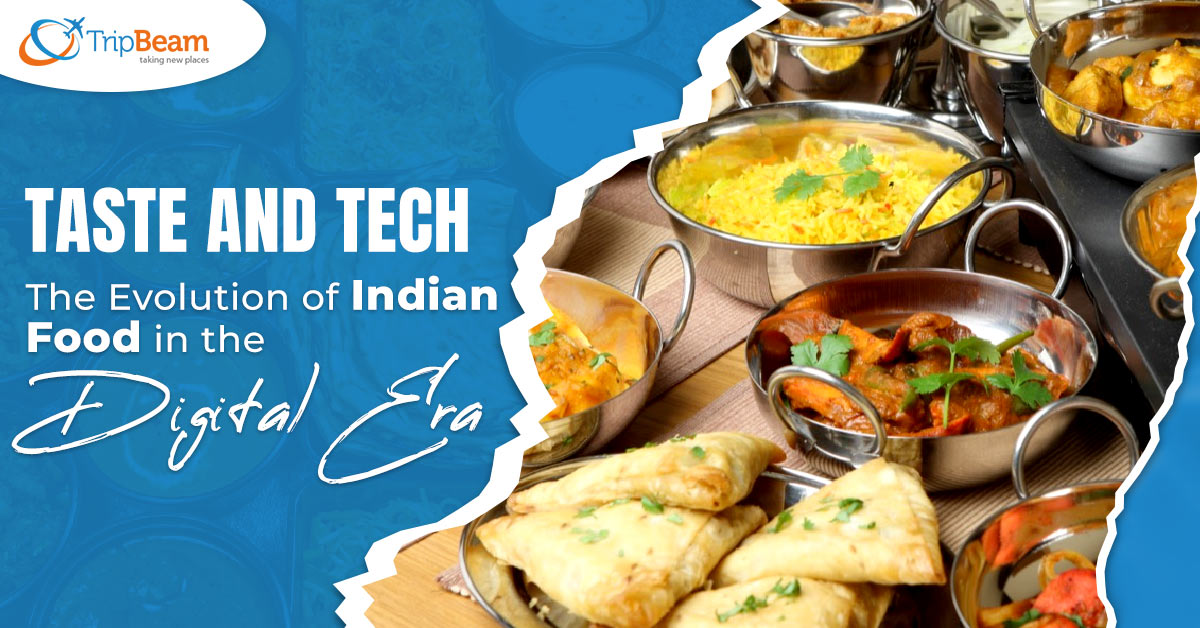
India is experiencing the challenge of providing food to a large population, while preserving the environment. The Indian food business is undergoing rapid change. The demands of humanity have evolved, technology is advancing, and a sustainable food system is required. Meanwhile, if you are planning to book cheap flights from USA to India, consider Tripbeam for your affordable journey.
We will explore the list of developments & technological trends influencing the food industry’s future in India.
Food Tech and Innovation
Many advancements have resulted from the convergence of food and technology. Our relationship alongside food is evolving thanks to AI-driven food recommendations, smart kitchen gadgets, and meal delivery applications. Blockchain technology is also being used to improve food supply chain traceability and transparency, enabling customers to make well-informed decisions about the goods they buy.
Cellular Agriculture
Growing meat and other animal products in labs is a notion that has received a lot of popularity. Cellular agriculture uses animal cells to produce meat, milk, and eggs without relying on traditional livestock farming. This strategy can significantly lessen the adverse effects of food production on the environment by using less water, land, and greenhouse gas emissions. As technology advances, it has the potential to completely transform how we think about and prepare foods originating from animals.
Precision Agriculture
Precision agriculture is essential to the search for a sustainable food future. This creative method increases agricultural resource utilisation, using drones, sensors, and data analytics, among other technological innovations. Farmers can limit the negative environmental effects of conventional farming operations, boost yields, and reduce waste by accurately applying herbicides, fertilizers, and water just where and when needed.
Plant-Based Revolution
The rise in popularity of plant-based food is one of the most famous trends. People are choosing more and more plant-based products over animal products for moral, ecological, and health concerns. Innovation has produced plant-based proteins that taste and feel like meat, going beyond the traditional veg burger. Businesses are spending money on research and development to provide more options for health-conscious consumers, such as plant-based milk and vegan seafood.
Vertical Farming
The concept of vertical farming, whereby crops are grown inside in stacked layers, was prompted by development and a shortage of fertile land. By comparison, this method requires less water, space, and pesticides than conventional cultivation. It is less necessary to rely on seasonal changes when crops can be cultivated year-round in controlled conditions. Long-distance transportation is also less crucial with vertical farming, leading to fresher produce with less carbon imprint.
Reducing Food Waste
The movement to reduce food waste is gathering steam. A large amount of food is wasted annually, from the farm to the consumer’s plate. Some examples of Innovative ideas are, using extra food to make value-added goods, donating unsaleable produce to food banks, and creating packaging that keeps edibles fresher longer. The industry can both solve hunger and lessen the environmental impact of squandered resources by addressing food waste.
Conclusion
In conclusion, new technologies transform how we grow, process, and distribute food. From smart farming practices to advanced processing methods, these innovations enhance sustainability, efficiency, and overall food quality in India. Everyone in India will have access to more nutritious, secure, and easily available food. On a different note, if you are planning a trip, don’t forget to book a cheap air ticket to india from any part of USA.
As we adopt these changes, the future looks bright for the food industry in India. We beat a better balance between feeding the world’s rising population and caring for our planet. The growing collaboration between technology and the food industry holds the key to a more robust, efficient, and tasty future for everyone.
Also Read: A Comprehensive Guide To Indian Cuisine For Travel Beginners

